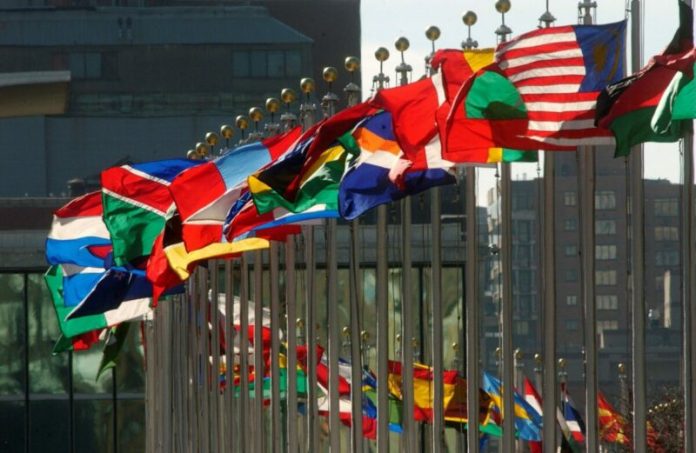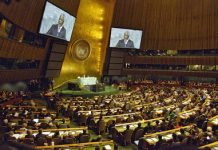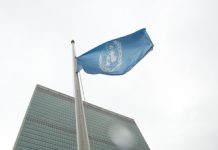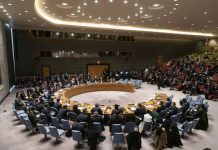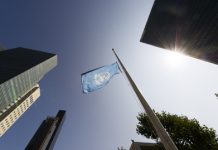Tech progress, automation, AI, cut workers’ share of wealth: ILO
Pay packets have been shrinking around the world for the last 20 years and one of the reasons could well be tech innovations such as automation and AI, UN economists said on Wednesday.
Data crunched by the International Labour Organization, ILO, found that from 2004 to 2024, workers’ output increased globally by 58 per cent, but over the same period, their income only increased by 53 per cent.
In the 36 highly industrialized countries where data was sourced, ILO said that total income declined globally by 0.6 percentage points between 2019 and 2022 “and has since remained flat”.
Here’s Celeste Drake, ILO Deputy Director-General:
“Global labour income share, which is the proportion of total global income that goes to workers, is shrinking. This means that even as workers contribute to a growing global economy, they’re taking home a smaller share of that growth. This needs to be changed, because it’s increasing inequality, which will have a disproportionate effect on working people”.
This decline in global income represents an annual shortfall in income of $2.4 trillion, which is in line with the longer-term decline of 1.6 per cent between 2004 and 2024, the UN agency said. Nearly 40 per cent of this decline happened during the three years of the COVID-19 pandemic from 2020 to 2022.
The ILO also cautioned that without policy intervention by governments, breakthroughs in generative AI “could exert further downward pressure” on take-home pay.
Gaza: Despite vaccination success, children still in front line of disease, war, says UNRWA
To Gaza, where despite the success of the mass polio vaccination campaign so far, UN humanitarians warned on Wednesday that the very children they are trying to protect, have been blighted by disease and traumatized by ongoing fighting.
It’s been nearly 11 months since war erupted in the enclave following Hamas-led terror attacks in Israel. Today more than nine in 10 people have been forcibly displaced by the fighting, leaving them vulnerable to hunger, malnutrition and sickness.
With more, here’s Louise Wateridge from the UN agency for Palestine refugees, UNRWA, which is playing a key role in the polio vaccination campaign:
“So far, we’ve been able to vaccinate 187,000 children and as we’ve been tent to tent and shelter to shelter…The reality is that these vaccinations are happening in the middle of a war zone, while many other diseases, such as hepatitis A, are spreading. Most of the children I’ve seen are covered in skin diseases and rashes, so while we’re doing everything we can to vaccinate for one disease, the inhumane conditions that are causing and spreading these diseases continues.”
The UNRWA spokesperson, Louise Wateridge, described the scene at one health centre where sewage had flooded the surrounding streets, forcing children to avoid the health hazard as they headed for their vaccine shots.
“People who need everything – in addition to the polio vaccinations, medical supplies, hygiene products and clean water are absolutely critical to stop the spread of disease,” Ms. Wateridge insisted.
Wednesday marks the final day for vaccinations in the Gaza’s Middle Area which humanitarians say has been a resounding success, despite ongoing fighting in some areas.
In Ukraine, humanitarians mobilize as Russian attacks kill and injure scores of civilians
The escalation in Russian attacks across Ukraine have killed and injured scores of civilians, UN humanitarians said on Wednesday, as they reported further damage to health and education facilities.
According to reports, the western city of Lviv was targeted at dawn in the latest wave of strikes, in which seven people died, including a mother and three daughters.
Further attacks also hit the capital, Kyiv, injuring five. The developments came after another Russian strike on a military institute in the central city of Poltava on Tuesday that left 53 people dead.
Condemning the latest developments, the UN’s top aid official in Ukraine, Matthias Schmale, stressed that civilians were not a legitimate target.
And from the UN refugee agency, UNHCR, spokesperson Matthew Saltmarsh warned that communities face another cold winter unless the fighting stops:
“So of course we’re calling for an immediate end to those attacks on civilian. Civilians and civilian structures and of course, an end to the hostilities over. I think the biggest concern for us right now, aside from the increase in in the amplitude of the attacks, is the coming colder weather, the winter months and that will just make the situation that much harder. The needs are going to rise, certainly in terms of providing a fuel energy. Shelter, warm clothing and so on. So that’s what we’re focusing on in the country at the moment.”
Shanae Harte, UN News.
Music composed and produced by Joachim Harris. All rights reserved
Source of original article: United Nations (news.un.org). Photo credit: UN. The content of this article does not necessarily reflect the views or opinion of Global Diaspora News (www.globaldiasporanews.com).
To submit your press release: (https://www.globaldiasporanews.com/pr).
To advertise on Global Diaspora News: (www.globaldiasporanews.com/ads).
Sign up to Global Diaspora News newsletter (https://www.globaldiasporanews.com/newsletter/) to start receiving updates and opportunities directly in your email inbox for free.


